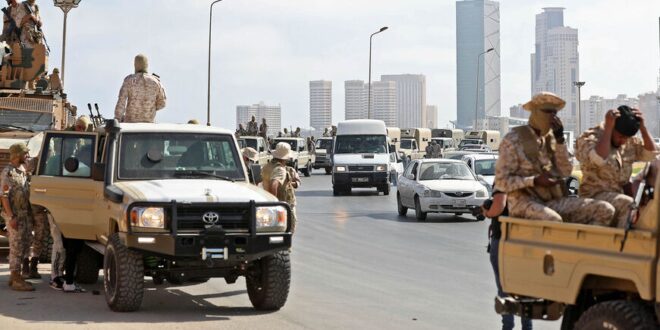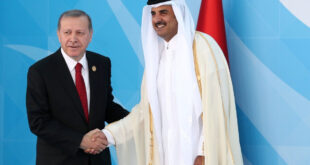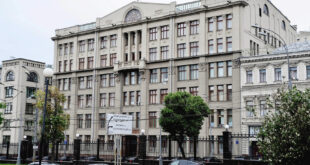Libya’s opposing factions agreed to reach a constitutional base for a political road map on Thursday following years of being entrenched in a deadly war.
The meeting was hosted and facilitated by Egyptian parliament Speaker Hanafy El-Gebaly. Egypt has been engaged in the Libyan file, mediating talks in a bid to end the division in the North African country.
The meeting was attended by Khaled al-Mishri, chairman of the High Council of State — an advisory body to the Tripoli-based government — and Aguila Saleh, speaker of the parliament in eastern Libya.
The US Embassy in Libya welcomed the agreement in a tweet encouraging the holding of parliamentary and presidential elections, thanking Egypt for the role it played.
1/2 Special Envoy Ambassador Richard Norland: "The conclusion of discussions between the leaders of the HoR and HSC today in #Cairo leaves no reason to delay setting an early date for parliamentary and presidential elections. #Libya pic.twitter.com/FRA2r4OiBZ
— US Embassy - Libya (@USEmbassyLibya) Jan. 5, 2023A joint communique issued by Saleh and Mishri provides an overview of the agreement in which both parties agreed to establish a road map that would legally and effectively launch the election process and carry out the unification of institutions.
No timeline or details for the constitutional base have been discussed.
Why it matters: Libya has been divided and drowning in chaos since a revolt that ended with the killing of Moammar Gadhafi in 2011. The country is split between two governments, one led by Abdul Hamid Dbeibah based in Tripoli, garnering the support of the United Nations and the international community, and another led by Fathi Bashagha in eastern Libya.
The chaos that ensued left a power vacuum that was filled by different groups and a tangible power struggle with armed militia forces scattered everywhere.
Militant activities and sporadic warfare have spread across the country and across the border into the Egyptian desert area.
Know More: Egypt has been trying to facilitate an agreement between the rival Libyan parties for years. Concerned about growing militant activities and cross-border attacks, the country’s internal fights pose a threat to Egypt’s national security. Last month, Egypt announced defining its maritime border with Libya.
Following the meeting, a press conference was held where Saleh said, according to Egyptian media outlets, that “Egypt has always sided with the interests of Libya and Libyans in order to be able to solve their crises, put an end to foreign intervention into their country’s internal affairs and help the Libyan state restore sovereignty. The brotherly neighboring state of Egypt has always encouraged Libyans to close ranks and exchange views, not to mention that it has hosted and sponsored on its eternal land the different meetings and talks among Libyans to enable them to reach a consensus and find final solutions to their internal political divisions that have negatively impacted the lives of Libyan citizens.”
There seems to be a political will to stabilize the Libyan file. Italian press reports mentioned a Qatar-sponsored meeting between Libyan political and Islamist figures.
Stability in Libya is also paramount to Italy that suffers waves of immigrants arriving on its shores as the country battles economic difficulties and political challenges. According to media reports, Italian Prime Minister Giorgia Meloni said that “Libya’s stability is the absolute priority of Italy’s strategy, as it is an essential element to ensure the security of the entire region. We are ready to do our part to achieve this stability in support of the United Nations, while respecting Libyan sovereignty,” further calling for parliamentary and presidential elections as soon as possible.
 Eurasia Press & News
Eurasia Press & News




